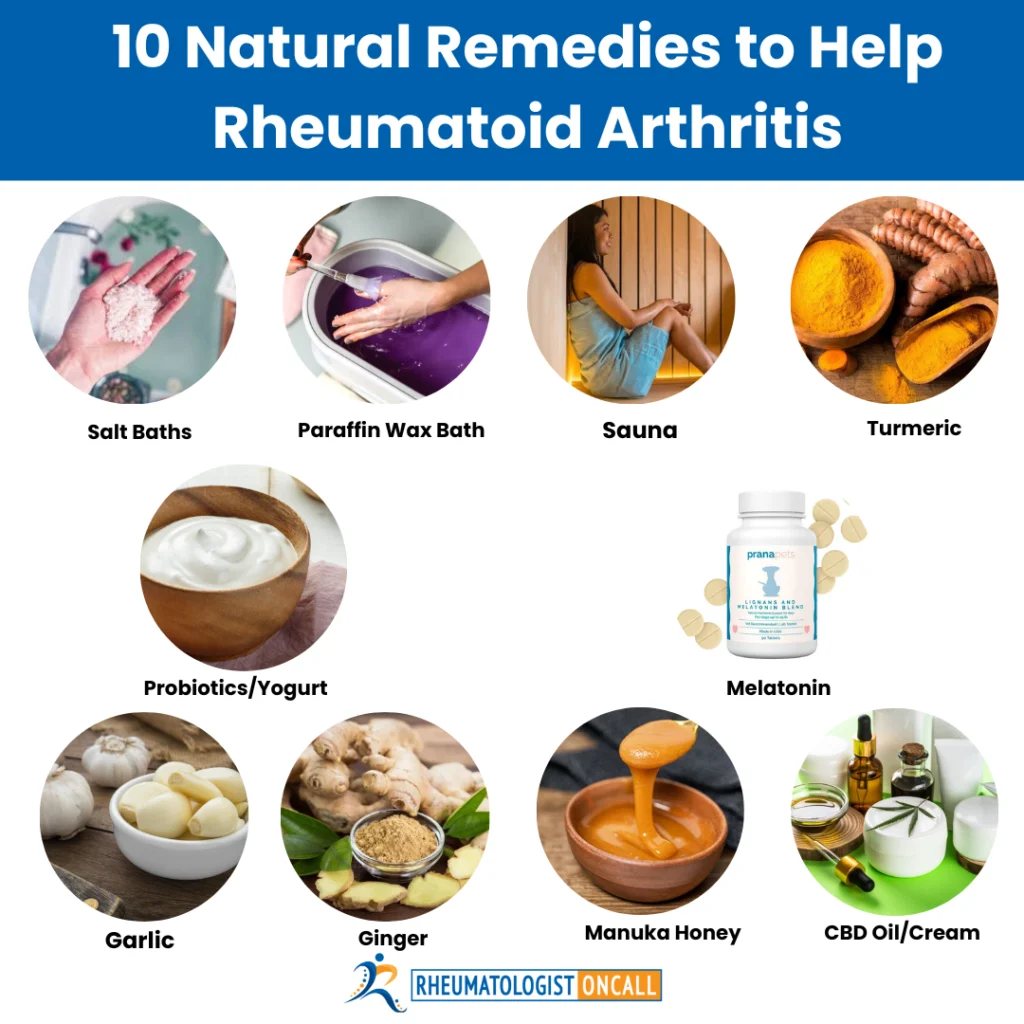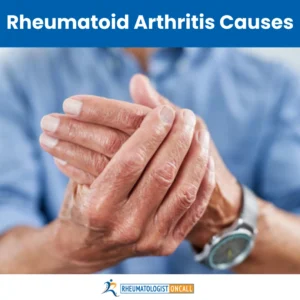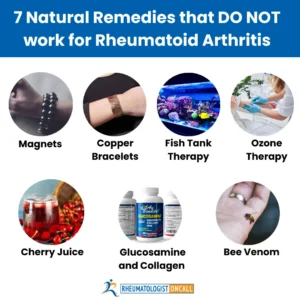SHARE
People with Rheumatoid Arthritis (RA) often look for natural and safe ways to ease pain and swelling. In my work, I always talk about the importance of eating right, staying active, and managing stress with people who have Rheumatoid Arthritis. However, it’s really important to remember that these natural solutions shouldn’t replace the medicines doctors prescribe—they should just be used along with regular treatments.
This article will address ten natural remedies or solutions that can help patients with Rheumatoid Arthritis (RA)
1. Salt Baths
When you are in pain, that will send a message to your muscles around the joints, and that will cause muscle contraction and tightness. Let’s say you have some neck and shoulder pain. Then, Indulging in a soothing salt bath can provide relief from pain while promoting muscle relaxation. It may be a great idea after a long day when you have been working a lot and your muscles are tight.
2. Paraffin Wax Bath
Have you ever been to a nail salon or a spa? Most of the time, they offer you a paraffin wax bath for your hands or feet. The paraffin wax will smooth your skin and coat your small joints. The warmth of the wax will increase blood circulation and relax the muscles. The paraffin wax will diminish your stiffness and pain.
3. Probiotics/Yogurt
There is strong evidence that a big part of the inflammation we see in Rheumatoid Arthritis is related to the gut microbiota. Some studies show people using daily probiotic supplements will have less pain and stiffness. Why don’t you consume yogurt regularly instead of using a supplement or pill? It will bring you the bacteria you need, which is much healthier and more convenient. You can even make yogurt in your kitchen.
4. Manuka Honey

Honey has been known for centuries for its antibacterial and anti-inflammatory properties. Manuka Honey is a special type produced in New Zealand by bees pollinating the tree. Eating regularly in small quantities might have a great effect on your body. If you have diabetes, be aware it may increase your blood sugar.
5. Melatonin
Melatonin is a hormone responsible for regulating sleep patterns. Many patients with Rheumatoid Arthritis suffer from sleep disturbances and sleep deprivation due to pain. Sleep disturbances impact the way that people feel with Rheumatoid Arthritis.
It was shown that patients with Rheumatoid Arthritis and high disease activity have lower melatonin levels. There are also some contradictory studies that report that melatonin might also affect the joint cartilage exhibiting anti-inflammatory properties. Using melatonin might help restore the circadian rhythm and help Rheumatoid Arthritis.
6. Garlic
Garlic is one of the most commonly used spices known for its effect on decreasing blood pressure, heart disease risk, and antibacterial and anti-inflammatory effects. In 2020, a randomized control trial on 70 patients with Rheumatoid Arthritis showed that those taking 1000mg of garlic for eight weeks had decreased their markers of inflammation, decreased fatigue, and decreased pain and swelling in the joints.
7. Ginger
Ginger is a plant from the same family as Turmeric. It is well-known in Asian cuisine, but it is also known to help with nausea in pregnant females. Ginger was also known to have antioxidant and anti-inflammatory effects. In patients with Rheumatoid Arthritis, 1500 mg ginger supplementation for a period of 12 weeks was shown to reduce the markers of inflammation, joint pain, and swelling.
8. Turmeric
Turmeric, also called the ‘golden spice”, comes from the root of the Curcuma longa plan. Turmeric has been used for centuries in Asian cuisine for its antimicrobial and anti-inflammatory properties. Its major active ingredient is curcumin. More than 120 clinical trials studied the effect of curcumin on different diseases. In Rheumatoid Arthritis patients, turmeric was administered daily for at least 90 days, and it was shown to reduce the pain and swelling in the joints, along with reducing the need to take anti-inflammatory medications (e.g. NSAIDs like ibuprofen, naproxen, etc.). Make sure turmeric is combined with black pepper for better gut absorption.
9. Sauna
Studies have shown that sauna improves blood circulation, relaxes muscles, reduces inflammation, and relieves pain. Infrared saunas use a specific type of light to emit infrared waves that penetrate deeply into the epidermis.
The heat relaxes our muscles and increases blood circulation. This naturally helps our body, easing swelling, stiffness, and fatigue commonly experienced by Rheumatoid Arthritis patients. Moreover, the heat from an infrared sauna releases endorphins – feel-good chemicals – that interact with brain receptors. The rise in endorphins reduces pain perception and enhances mood, making patients feel relaxed.
10. CBD Oil/Cream
CBD (cannabidiol) is a non-psychoactive medicinal compound derived from the cannabis plant. Please note that CBD oil does not contain THC (tetrahydrocannabinol), responsible for marijuana’s psychological effect. So, CBD doesn’t cause the ‘high’ effect.
CBD oil was shown to impact the level of inflammation at the level of the brain but can also reduce the inflammation markers at the local level in the joints. Some suggestions using CBD oil might help with sleep disturbance, which is common in patients with Rheumatoid Arthritis. The National Arthritis Foundation ran a survey showing that 61% used a liquid CBD form, while 55% used a topical product.
In 2022, another study on CBD showed that 80% of people reported pain improvements, 66% reported physical function improvement, and 66% improvements in sleep quality (66%),
However, CBD may help with arthritis-related symptoms, such as pain, insomnia, and anxiety, but there have been no rigorous clinical studies on people with arthritis to confirm this.
CBD should never be used to replace disease-modifying drugs that help prevent permanent joint damage in inflammatory types of arthritis. You should also discuss with your doctor that there might be potential drug-drug interactions.
Conclusion
When it comes to managing the symptoms of Rheumatoid Arthritis (RA), natural remedies can be a helpful addition. However, it’s important to note that these remedies may not be universally safe and can potentially have adverse effects when combined with prescribed medications. That is why consulting your doctor before incorporating new approaches into your Rheumatoid Arthritis management plan is absolutely essential.
At Rheumatologist OnCall, we take pride in our specialized and integrative approach tailored specifically for individuals with Rheumatoid Arthritis. Our focus goes beyond just treatment; we also prioritize education on crucial aspects such as nutrition. We offer online courses and personalized physical therapy sessions to meet individual needs. Additionally, we emphasize mindfulness practices to enhance overall well-being, providing a comprehensive approach to managing Rheumatoid Arthritis.
We understand the importance of holistic care. Our goal extends beyond diagnosis and treatment; we are passionate about empowering our patients with the knowledge and tools necessary to manage Rheumatoid Arthritis effectively. Promoting a thorough understanding of the condition and facilitating access to various resources enables our patients to achieve optimal outcomes and embrace a life filled with fulfillment and well-being.
Remember, when considering natural remedies, it is vital to exercise caution and seek medical guidance in order to ensure the safety and effectiveness of your Rheumatoid Arthritis management plan.














